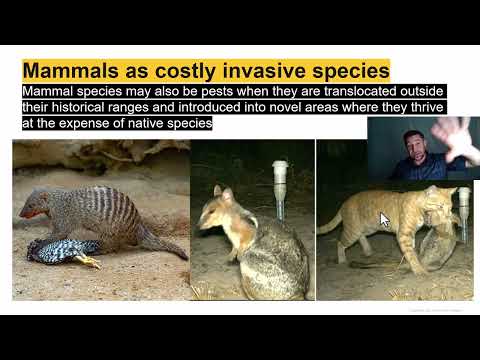Description:
Explore the significance of mammals in ecosystems, human society, and scientific research through this engaging lecture. Discover how mammals form critical links in food webs, their role in ecosystem functions, and the impact of their removal, as illustrated by the case of gray wolves in Yellowstone National Park. Learn about the long-standing relationship between humans and mammals in agriculture, companionship, and biomedical research. Examine the economic impact of pet ownership and the development of mouse models for studying human diseases. Investigate the potential of mammals as disease reservoirs and vectors, their impact as invasive species, and the central role of humans as the primary eco-evolutionary drivers on Earth. Gain a comprehensive understanding of why studying mammals is crucial for ecological, economic, and scientific advancement.

Why Study Mammals? - Lecture 1.2
Add to list